| Coach | NA |
| Venue | Sparkasse Arena Birkenwiese |
Dornbirn predictions
Predictions for Dornbirn: See upcoming and historic predictions for Dornbirn below.
Disclaimer: Past performance does not guarantee future results. Betting involves risk; only wager what you can afford to lose. Always gamble responsibly.
Dornbirn latest results
| 12/04 | - | ||
| 06/04 | - | ||
| 30/03 | 4 - 0 | ||
| 02/03 | 0 - 2 | ||
| 24/02 | 3 - 0 |
2. Liga standings
| Rank | Team | MP | W | D | L | GF | GA | GD | Pts |
|---|---|---|---|---|---|---|---|---|---|
| 1 |
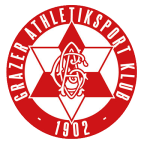 Grazer AK
Grazer AK
|
22 | 16 | 4 | 2 | 40 | 19 | 21 | 52 |
| 2 |
 Ried
Ried
|
22 | 11 | 5 | 6 | 46 | 20 | 26 | 38 |
| 3 |
 Leoben
Leoben
|
22 | 11 | 5 | 6 | 36 | 22 | 14 | 38 |
| 4 |
 Floridsdorfer AC
Floridsdorfer AC
|
21 | 10 | 6 | 5 | 34 | 23 | 11 | 36 |
| 5 |
 SKN ST. Polten
SKN ST. Polten
|
22 | 11 | 2 | 9 | 38 | 34 | 4 | 35 |
| 6 |
 SV Horn
SV Horn
|
22 | 11 | 0 | 11 | 30 | 35 | -5 | 33 |
| 7 |
 Admira Wacker
Admira Wacker
|
21 | 9 | 6 | 6 | 33 | 25 | 8 | 33 |
| 8 |
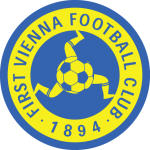 First Vienna
First Vienna
|
22 | 9 | 6 | 7 | 36 | 33 | 3 | 33 |
| 9 |
 SV Lafnitz
SV Lafnitz
|
22 | 10 | 2 | 10 | 35 | 37 | -2 | 32 |
| 10 |
 Schwarz-Weiß Bregenz
Schwarz-Weiß Bregenz
|
22 | 10 | 5 | 7 | 35 | 28 | 7 | 32 |
| 11 |
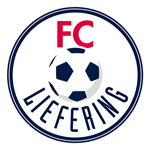 FC Liefering
FC Liefering
|
22 | 8 | 6 | 8 | 35 | 32 | 3 | 30 |
| 12 |
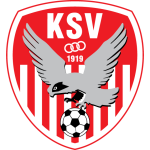 SV Kapfenberg
SV Kapfenberg
|
22 | 6 | 8 | 8 | 26 | 35 | -9 | 26 |
| 13 |
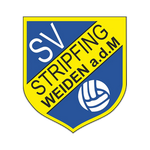 Stripfing
Stripfing
|
22 | 8 | 2 | 12 | 28 | 42 | -14 | 26 |
| 14 |
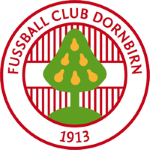 Dornbirn
Dornbirn
|
22 | 6 | 1 | 15 | 19 | 40 | -21 | 19 |
| 15 |
 Sturm Graz II
Sturm Graz II
|
22 | 2 | 8 | 12 | 26 | 51 | -25 | 14 |
| 16 |
 SKU Amstetten
SKU Amstetten
|
22 | 2 | 4 | 16 | 19 | 40 | -21 | 10 |
About Dornbirn
Football Club Dornbirn 1913, commonly known as FC Dornbirn, is a professional football club based in Dornbirn, a city in the Austrian state of Vorarlberg. The club was established in 1913, making it one of the oldest football clubs in Austria. FC Dornbirn's team colors are black and white, and they play their home games at the Stadion Birkenwiese, which has a seating capacity of approximately 12,000 spectators.
Throughout its history, FC Dornbirn has had a series of ups and downs, experiencing periods of success and struggle. The club has spent most of its existence in the lower tiers of Austrian football, but it has also had stints in the top-flight Austrian Bundesliga.
In the 1960s, FC Dornbirn enjoyed one of its most successful periods, playing in the Austrian Bundesliga for several seasons. However, the club was relegated in the 1970s and spent the next few decades in the lower leagues. Despite these challenges, FC Dornbirn has always been a vital part of the local community, fostering a strong fan base and contributing to the development of football in the region.
In recent years, FC Dornbirn has shown signs of resurgence. In the 2018-2019 season, the club won the Regionalliga West, the third tier of Austrian football, and earned promotion to the 2. Liga, the second tier. This marked a significant milestone for the club, as it was their first return to professional football in nearly two decades.
FC Dornbirn has also been known for its youth development program, which has produced several players who have gone on to have successful careers in professional football. The club's commitment to nurturing young talent is a testament to its dedication to the sport and its community.
Despite the challenges and struggles, FC Dornbirn remains a beloved institution in Dornbirn and the wider Vorarlberg region. The club's history, its commitment to its community, and its ongoing efforts to develop local talent make it a vital part of Austrian football. As FC Dornbirn continues to compete and grow, it carries with it a legacy of over a century of football in Dornbirn.















